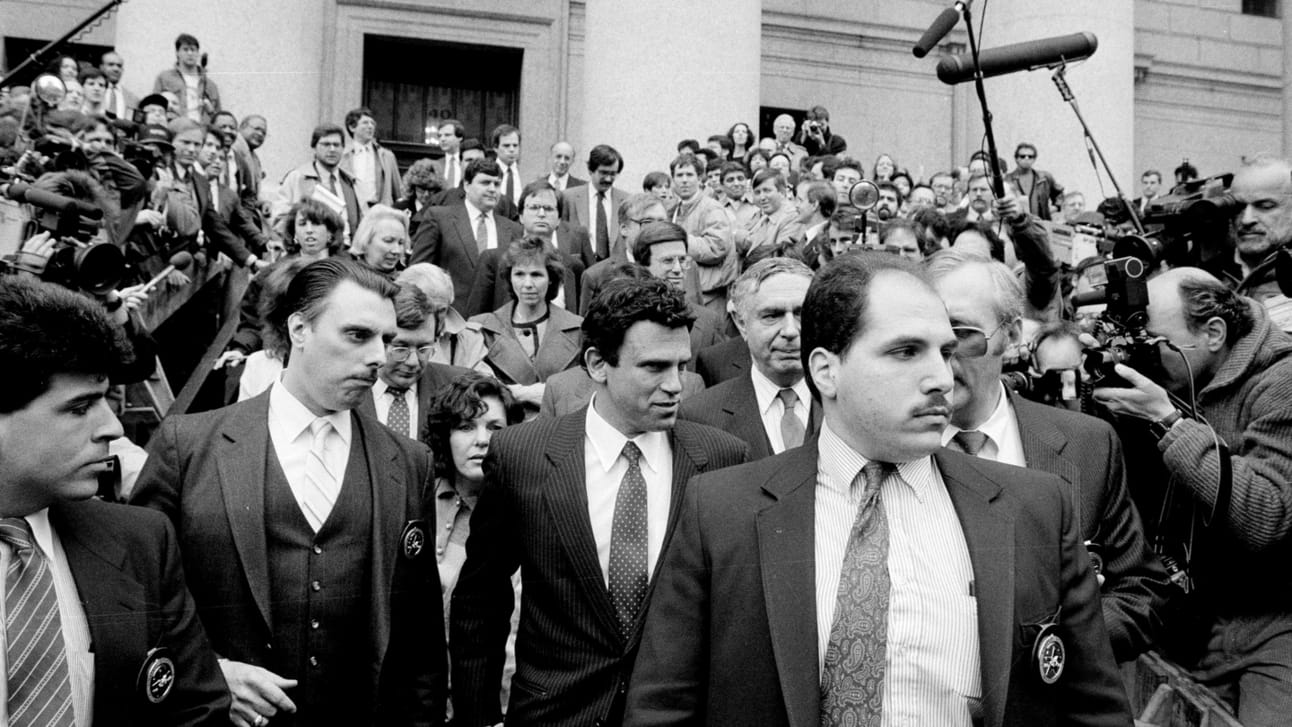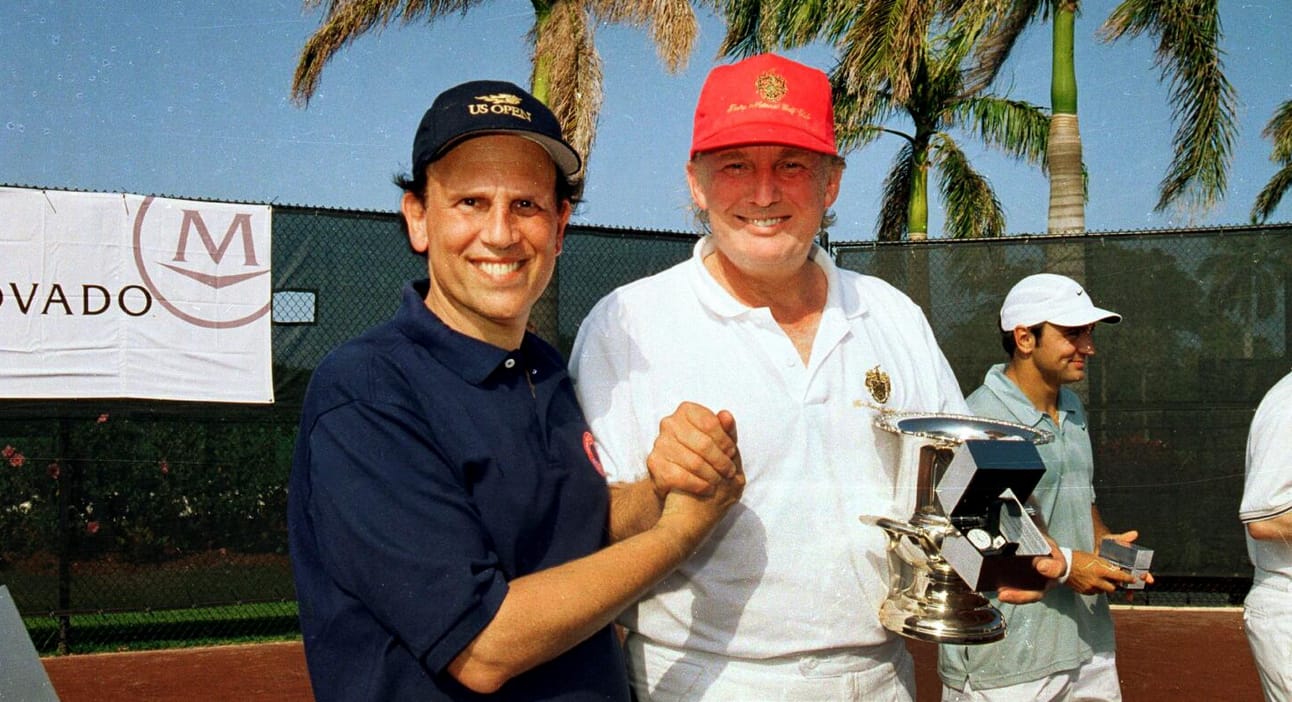- Investor Briefcase
- Posts
- The trader who was pardoned by Trump
The trader who was pardoned by Trump
How Michael Milken changed Wall Street and went to prison for it.
Michael Milken was once the highest-paid trader on Wall Street until he became the center of one of the biggest financial scandals in history. Indicted on nearly 100 counts of fraud and insider trading, he went from billionaire to prisoner. Decades later, President Trump granted him a full pardon.

This week we look at how he became the ‘Junk Bond King’, the collapse that sent him to prison, and the eventual presidential pardon that brought him back:
📈 Popularizing the high yield bond market
⚖️ Legal troubles and conviction
🔄 Being pardoned by Trump
— Investor Briefcase Team



Michael Milken entered finance in 1969 when he joined Drexel Harriman Ripley, which later became Drexel Burnham Lambert. At that time, high-yield bonds, often referred to as “junk bonds,” were largely ignored by mainstream investors due to the higher risk of default. Milken saw potential in these instruments, believing they could offer substantial returns to investors willing to accept higher risk.
Instead of focusing on blue-chip companies, he targeted businesses with low credit ratings that were looking for growth and expansion but couldn’t secure traditional financing.
“In financing growing companies, we always looked for human value that didn’t appear on the balance sheet.”
Milken convinced investors that junk bonds could fuel growth, helping companies like MCI Communications and Turner Broadcasting raise capital. As demand increased, his influence grew. By the mid-1980s, his division was making billions, and in 1986 alone, he earned an estimated $550 million, more than anyone else on Wall Street.
“We were providing capital to businesses that would have never existed under the old system.”
Milken’s approach helped companies access capital, but it also enabled a wave of hostile takeovers and leveraged buyouts. His aggressive tactics made him one of the most powerful individuals on Wall Street, but it also made him a target.


Despite his financial success, the aggressive nature of Milken’s work attracted regulatory scrutiny. In the late 1980s, the Securities and Exchange Commission (SEC) and federal prosecutors began investigating Drexel Burnham Lambert’s operations, suspecting violations of securities laws.

The investigation revealed that Milken had engaged in insider trading among other fraudulent activities. Prosecutors alleged that he manipulated stock prices, used secret partnerships to mask illegal deals and mislead investors to drive up bond values. In 1989, Milken was indicted on 98 counts, including securities fraud and racketeering.
He initially fought the charges, but in 1990, he struck a plea deal. He pleaded guilty to six counts of securities fraud and conspiracy, agreeing to pay a record $600 million in fines and restitution. He was sentenced to ten years in prison.
“I made mistakes, and I take full responsibility for them.”
His conviction shook Wall Street and marked the end of an era. Drexel Burnham Lambert collapsed under the weight of legal troubles and went bankrupt. Milken’s empire had crumbled.
He was released from prison in 1993 after serving 22 months of his sentence due to cooperation and good behavior. He was permanently banned from working in the securities industry but his influence in finance was far from over.



After his release, Milken turned his attention to philanthropy and business ventures outside of Wall Street. He became an advocate for medical research and education, donating hundreds of millions of dollars to causes focused on cancer treatment, public health, and financial literacy.
“Your past does not define your future. What you do next does.”
He founded the Milken Institute, a think tank focused on economic policy, public health, and capital markets. Despite his legal history, Milken remained highly influential in finance and philanthropy.
In 2020, President Donald Trump granted Milken a full pardon. The decision was supported by prominent business leaders and government officials who argued that his contributions to philanthropy and financial education outweighed his past crimes.
“He’s gone around and done an incredible job for the world with all of his research on cancer.”
His reputation, however, remained controversial. While some credit him with reshaping capital markets and democratizing access to financing, others see him as a symbol of Wall Street greed. His legal troubles were never forgotten, and to this day, his efforts to regain legitimacy are met with mixed reactions.

Sponsored by SmartNora
Smart Nora’s patented solution has already brought better sleep to more than 100,000 customers. The company is now bringing this technology to millions of people who can not tolerate CPAPs and other invasive snoring and sleep apnea solutions. Sleep apnea awareness and detection are at all times high. This is the perfect opportunity to join them.
Read the Offering information carefully before investing. It contains details of the issuer’s business, risks, charges, expenses, and other information, which should be considered before investing. Obtain a Form C and Offering Memorandum at invest.smartnora.com. This is a paid advertisement for Smart Nora, LLC's Reg CF campaign.

More Stories
Other Financiers Pardoned by U.S. Presidents
> Marc Rich: A commodities trader indicted for tax evasion and illegal oil dealings, Rich was pardoned by President Bill Clinton in 2001. His pardon was controversial due to political donations from his ex-wife.
> Pincus Green: Partnered with Marc Rich in commodities trading, Green was indicted in 1983 for tax evasion and illegal oil trading. He was pardoned by President Bill Clinton in 2001.
> David B. McCall Jr.: A banker convicted in 1997 for creating fraudulent loan records, leading to the collapse of his savings and loan association. He was pardoned by President George W. Bush in 2004.

Each week we profile the most notorious investment stories.
Got an idea for a story? Email us at [email protected]